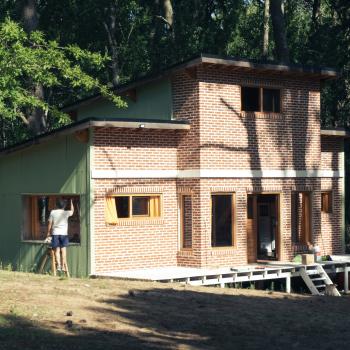The Cost of Delay: Evaluating the Impact of Entitlement Inefficiencies on Housing Affordability and Development Feasibility
By Gracy Weil
Earlier this year, Bill and I attended a housing consortium with brilliant and prolific builders, developers, and public servants. We were tasked with not only "what would make the biggest impact on the housing crisis?", but "what can we actually do about it?". The public sector answered with "more money", while the private sector spoke out against any increase in already suffocatingly high fees and regulatory burdens.
I sat with this for a long time until the thought occurred to me, "What if the solution didn't require more money at all? What if we focused on process?".
Inefficiencies in permitting and entitlement processes impact the cost and feasibility of housing development in Colorado. For every month that a plot of land lies undeveloped, builders and developers face a series of escalating costs that are then passed down to the eventual buyer.
By identifying and studying case studies where jurisdictions have reduced administrative bottlenecks and improved cross-departmental approvals, we can begin to quantify the cost of these delays and identify where reform can have the most significant impact. We aim to present this data, along with potential pilot programs, to municipalities across Colorado. Because, beyond builders and developers, it's clear that misguided or inefficient processes are actively harming the very constituents that cities are trying to serve.
In this way, DU's Center for Community Engagement and Learning (CCESL) challenged me to think critically about how I communicate my findings as accessible, actionable outcomes that serve real people. This shouldn't be of interest only to fellow researchers and planners, but to the public, to elected officials, and to the people most affected by the housing crisis.
Most of all, I hope that my research makes a difference. I hope it helps municipalities and local constituents better understand the nuances of the homebuilding process. I hope that we can confront how systems like development review and local housing policy, though well-intentioned, can reinforce inequity and perpetuate the housing shortage. Housing is more than a market issue. It touches nearly every aspect of community well-being. Permitting delays and regulatory burdens may seem like small bureaucratic inefficiencies, but they compound quickly. With the right tools, partners, and perspective, I believe we can start building systems that actually support the kind of communities we all deserve to live in.
A sincere thank you to the staff at the City of Thornton and Salt Lake City, Albert Bozoki at the Homebuilders Association of Metro Denver, Todd Johnson and Dr. Eric Holt, and all of those who have contributed to our research via interviews, surveys, or entitlement timelines.
